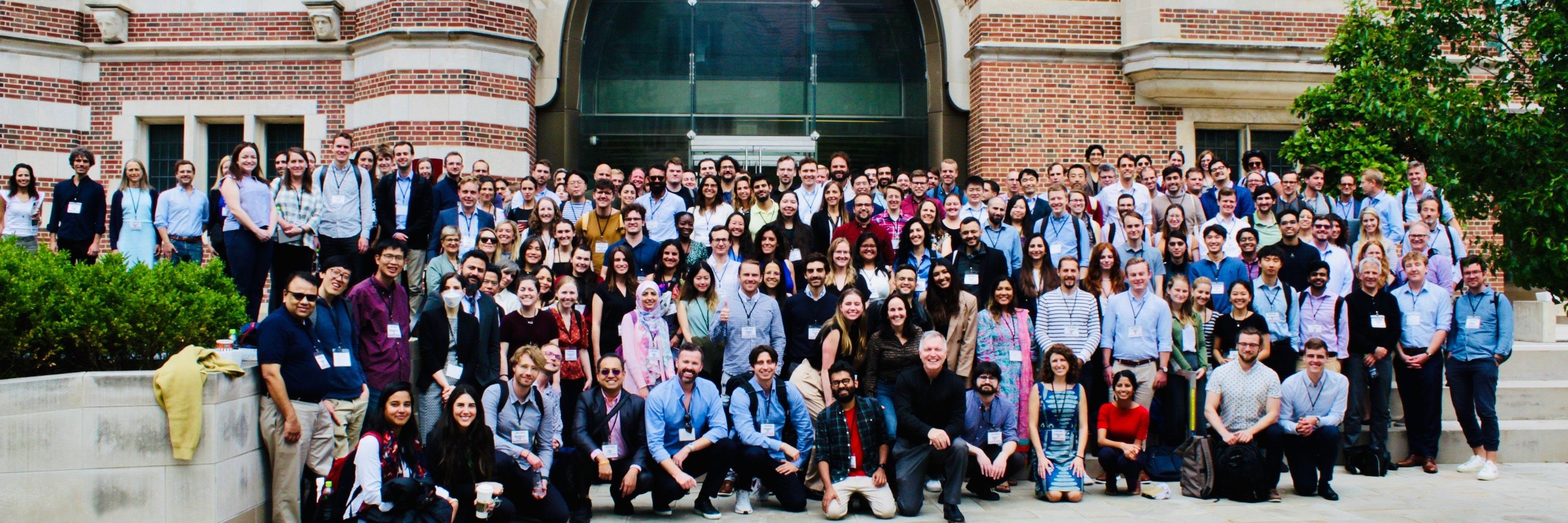
Chief Economist: Centre for Net Zero (Octopus Energy Group).
Co-editor: Journal of Public Economics.
1st gen, 🏴
https://www.rmetcalfe.net/

Sign up here: docs.google.com/forms/d/e/1F...

Sign up here: docs.google.com/forms/d/e/1F...
JMP: Does Greater Policy Intensity Improve Policy
effectiveness? Evidence from Seoul, South Korea
Website: sites.google.com/view/hayeonj...
Interests: Environmental Econ, Behavioral Econ

JMP: Does Greater Policy Intensity Improve Policy
effectiveness? Evidence from Seoul, South Korea
Website: sites.google.com/view/hayeonj...
Interests: Environmental Econ, Behavioral Econ
JMP: "The Economic Incidence of Schedule Unpredictability in Hourly Work"
Website: hannahfarkas.github.io
Interests: Environmental Econ, Labor Econ

JMP: "The Economic Incidence of Schedule Unpredictability in Hourly Work"
Website: hannahfarkas.github.io
Interests: Environmental Econ, Labor Econ

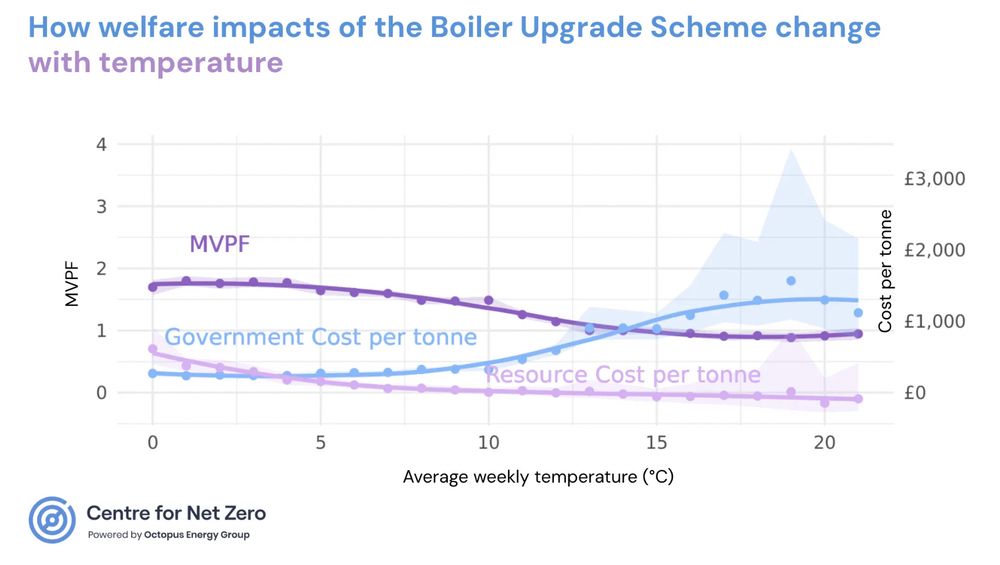
1️⃣ The Coefficient of Performance (COP) averages around 3.5, but drops below 2 during the coldest winter weeks.
2️⃣ This temperature gradient is steeper than predicted by engineering models—read the paper to explore all the reasons why.
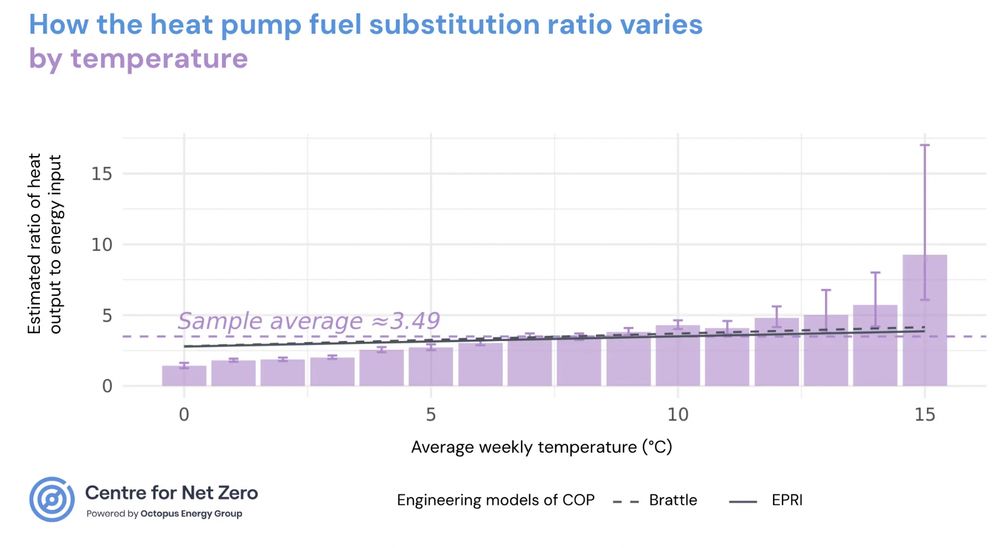
1️⃣ The Coefficient of Performance (COP) averages around 3.5, but drops below 2 during the coldest winter weeks.
2️⃣ This temperature gradient is steeper than predicted by engineering models—read the paper to explore all the reasons why.
“Business and Its Interrelationship with Democratic Resilience, Geopolitics, and Society in a Time of Change.”
October 1, 2025 deadline for 5-page detailed paper proposals.
pubsonline.informs.org/doi/full/10....
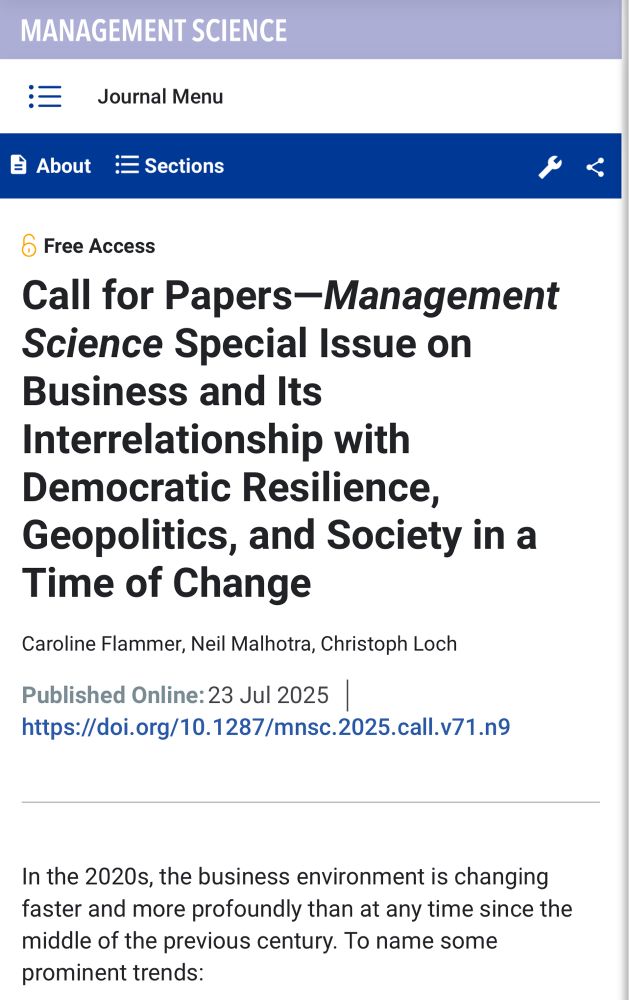
“Business and Its Interrelationship with Democratic Resilience, Geopolitics, and Society in a Time of Change.”
October 1, 2025 deadline for 5-page detailed paper proposals.
pubsonline.informs.org/doi/full/10....
Gaps not driven by differences in UI eligibility. Black workers' lower earnings and location in the South explain a large share (but not all) of the gaps.
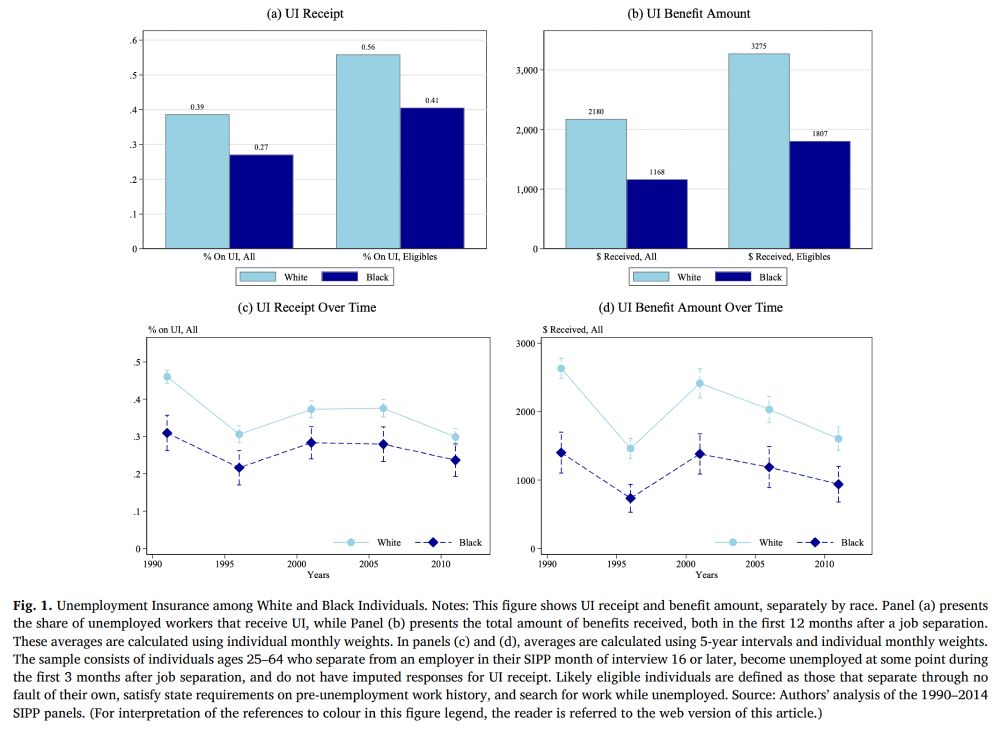
Gaps not driven by differences in UI eligibility. Black workers' lower earnings and location in the South explain a large share (but not all) of the gaps.
Their mobility elasticity is high, and is higher for state/local taxes.




Their mobility elasticity is high, and is higher for state/local taxes.
1️⃣ A 40% price reduction led to a 117% increase in charging demand.
2️⃣ A 15% price cut led to a 30% increase.
3️⃣ We disentangle behavior: ~50% is substitution from other charging apps, but the other 50% is new, induced demand.
4️⃣ Substantial consumer welfare gains from dynamic pricing.

1️⃣ A 40% price reduction led to a 117% increase in charging demand.
2️⃣ A 15% price cut led to a 30% increase.
3️⃣ We disentangle behavior: ~50% is substitution from other charging apps, but the other 50% is new, induced demand.
4️⃣ Substantial consumer welfare gains from dynamic pricing.

I'm excited to share our new @centrefornetzero.bsky.social working paper:
“The Impact of Dynamic Prices on Electric Vehicle Public Charging Demand: Evidence from a Nationwide Natural Field Experiment”

I'm excited to share our new @centrefornetzero.bsky.social working paper:
“The Impact of Dynamic Prices on Electric Vehicle Public Charging Demand: Evidence from a Nationwide Natural Field Experiment”

Anna Papp – Postdoc: MIT Econ | AP: UCSB Bren
Danny Bressler – AP: Bentley Econ
Gabriel Gonzalez Suntil – Economist: Amazon
Isabella Smythe – ML Engineer: Rhizome

Anna Papp – Postdoc: MIT Econ | AP: UCSB Bren
Danny Bressler – AP: Bentley Econ
Gabriel Gonzalez Suntil – Economist: Amazon
Isabella Smythe – ML Engineer: Rhizome
Please submit your abstracts here: fs2.formsite.com/UChicagoEcon...
Deadline: May 9th
Keynotes: Bursztyn (UChicago), Cullen (HBS), and Kremer (UChicago)
#econsky
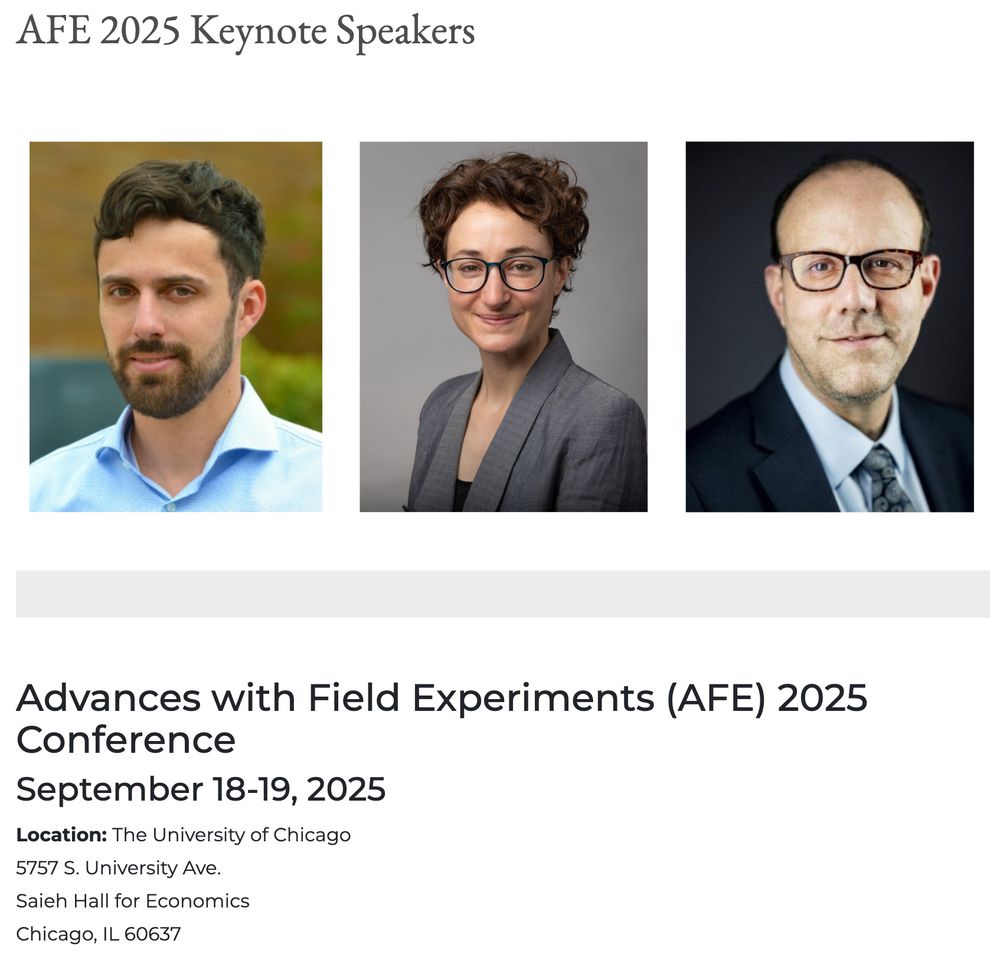
Please submit your abstracts here: fs2.formsite.com/UChicagoEcon...
Deadline: May 9th
Keynotes: Bursztyn (UChicago), Cullen (HBS), and Kremer (UChicago)
#econsky
This innovative paper suggests a resounding no.
Worth a read.
By Tristan Grupp, @mishrap.bsky.social, Mathias Reynaert, & Arthur van Benthem
www.dropbox.com/scl/fi/grj9m...

This innovative paper suggests a resounding no.
Worth a read.
By Tristan Grupp, @mishrap.bsky.social, Mathias Reynaert, & Arthur van Benthem
www.dropbox.com/scl/fi/grj9m...

A £1 subsidy for air purifiers or monitors pays for itself through massive health & productivity benefits that flow back to the government. This is the Pareto improvement.

A £1 subsidy for air purifiers or monitors pays for itself through massive health & productivity benefits that flow back to the government. This is the Pareto improvement.
Households value a 1 µg/m³ reduction in PM2.5 at ~£4.80 ($6).
But interestingly, they’re willing to pay more for mitigation (Philips air purifiers) than for just information (Kaiterra monitors).

Households value a 1 µg/m³ reduction in PM2.5 at ~£4.80 ($6).
But interestingly, they’re willing to pay more for mitigation (Philips air purifiers) than for just information (Kaiterra monitors).
When households were randomly shown real-time data on their IAP, pollution dropped by 17% overall & 34% during peak exposure times.
How? We find overwhelming evidence that people opened windows more to ventilate. A simple, effective fix.

When households were randomly shown real-time data on their IAP, pollution dropped by 17% overall & 34% during peak exposure times.
How? We find overwhelming evidence that people opened windows more to ventilate. A simple, effective fix.
Overall, we find a larger income-IAP gradient than the income-ambient pollution gradient, meaning poorer households face significantly higher exposure inside their own homes. Even steeper still in occupancy times.

Overall, we find a larger income-IAP gradient than the income-ambient pollution gradient, meaning poorer households face significantly higher exposure inside their own homes. Even steeper still in occupancy times.


🧵with six main results👇
With @sjroth.bsky.social.
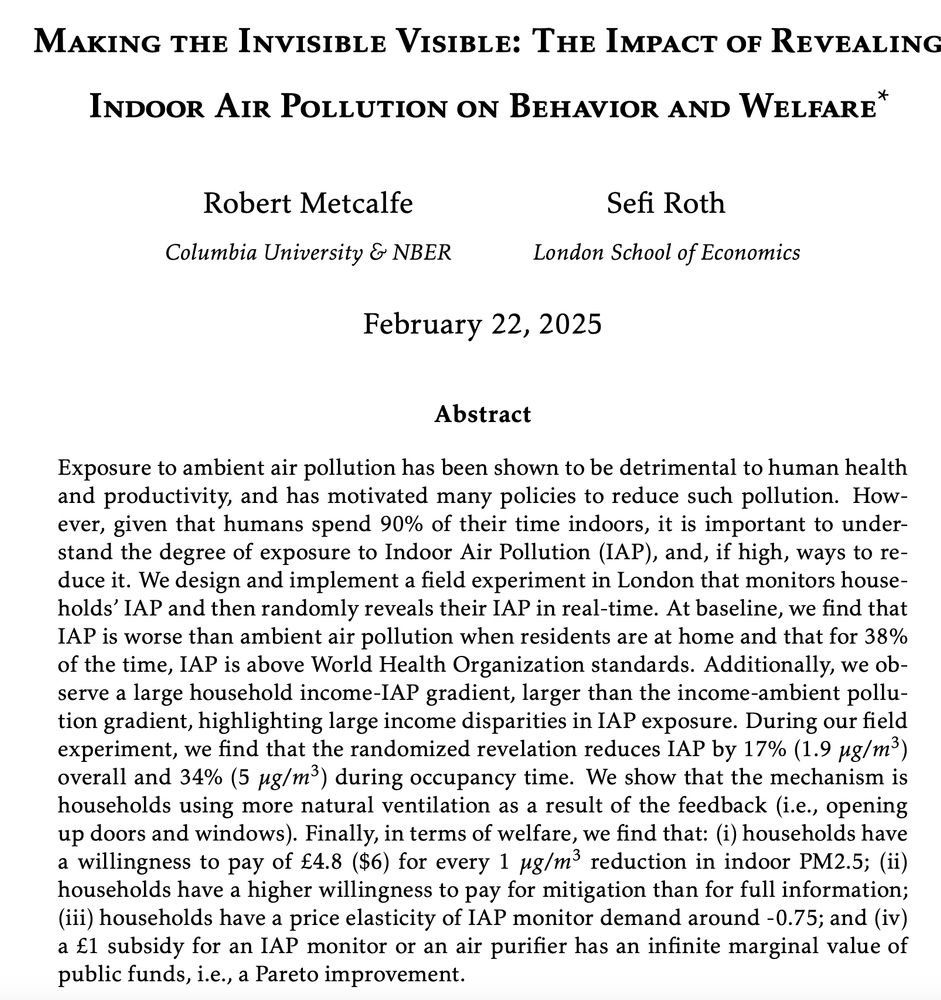
🧵with six main results👇
With @sjroth.bsky.social.
The 2025 Advances with Field Experiments (AFE) conference is scheduled for Sept 18-19, 2025 at The University of Chicago.
✨ Keynotes:
Leonardo Bursztyn (UChicago)
Zoe Cullen (Harvard)
Michael Kremer (UChicago)
🗓 Deadline for abstracts: May 9, 2025

The 2025 Advances with Field Experiments (AFE) conference is scheduled for Sept 18-19, 2025 at The University of Chicago.
✨ Keynotes:
Leonardo Bursztyn (UChicago)
Zoe Cullen (Harvard)
Michael Kremer (UChicago)
🗓 Deadline for abstracts: May 9, 2025

